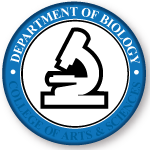Document Type
Article
Publication Date
2-10-2017
Publication Title
International Journal of STEM Education
Volume
4
Issue
3
Abstract
Background: Many university students are becoming involved in mentoring programs, yet few studies describe the impact of mentoring on the mentor. Additionally, many studies report that students graduating from college are not prepared to enter the workforce in terms of key career skills and/or content knowledge. Herein, we examine the impact of our program, NE STEM 4U (Nebraska Science, Technology, Engineering and Math for You), in which undergraduate (UG) mentors engage K-8 youth in after-school STEM experiments. The UGs reflected upon their experiences using post-mentoring evaluations, 12- and 24-week interviews, and exit surveys. Many of the questions asked of the mentors related directly to their own professional development, such as self-evaluation of communication, organization, and problem-solving skills, while other questions related to content knowledge and reflection.
Results: Post-mentoring, UGs reflected on the delivery/teaching significantly more (p ≤ 0.001 for each) than other variables (i.e., their own content knowledge gains, the students’ content knowledge gains, scaffolding the lessons, or overall professional growth). By analyzing the evaluations and interviews together, some significant, self-reported gains emerged. For example, 94.15% of the UG reported that the experience was beneficial to their education. Additionally, UG mentors self-reported significant gains (p ≤ 0.01 for each) moving from 12- to 24-weeks in the program in the categories of organization, STEM content knowledge, preparedness to teach, and engagement in the program. However, UG did not report significant gains in dependability. Importantly, when mentors ranked themselves at 24-weeks, they were blinded to (unaware of) the ranking they gave themselves at 12-weeks.
Conclusions: This study helps to fill a gap in the literature by providing insight into the gains UG mentors report attaining after mentoring to K-8 students. These data suggest that participation by UGs in this program promoted self-reflection as well as self-reported gains related to career preparedness and STEM content knowledge.
Recommended Citation
Nelson, Kari L.; Sabel, Jamie; Forbes, Cory; Grandgenett, Neal; Tapprich, William E.; and Cutucache, Christine E., "How do undergraduate STEM mentors reflect upon their mentoring experiences in an outreach program engaging K-8 youth?" (2017). Biology Faculty Publications. 86.
https://digitalcommons.unomaha.edu/biofacpub/86
Included in
Biology Commons, Science and Mathematics Education Commons, Teacher Education and Professional Development Commons
Funded by the University of Nebraska at Omaha Open Access Fund


Comments
© The Author(s). 2017 Open Access This article is distributed under the terms of the Creative Commons Attribution 4.0 International License (http://creativecommons.org/licenses/by/4.0/), which permits unrestricted use, distribution, and reproduction in any medium, provided you give appropriate credit to the original author(s) and the source, provide a link to the Creative Commons license, and indicate if changes were made.